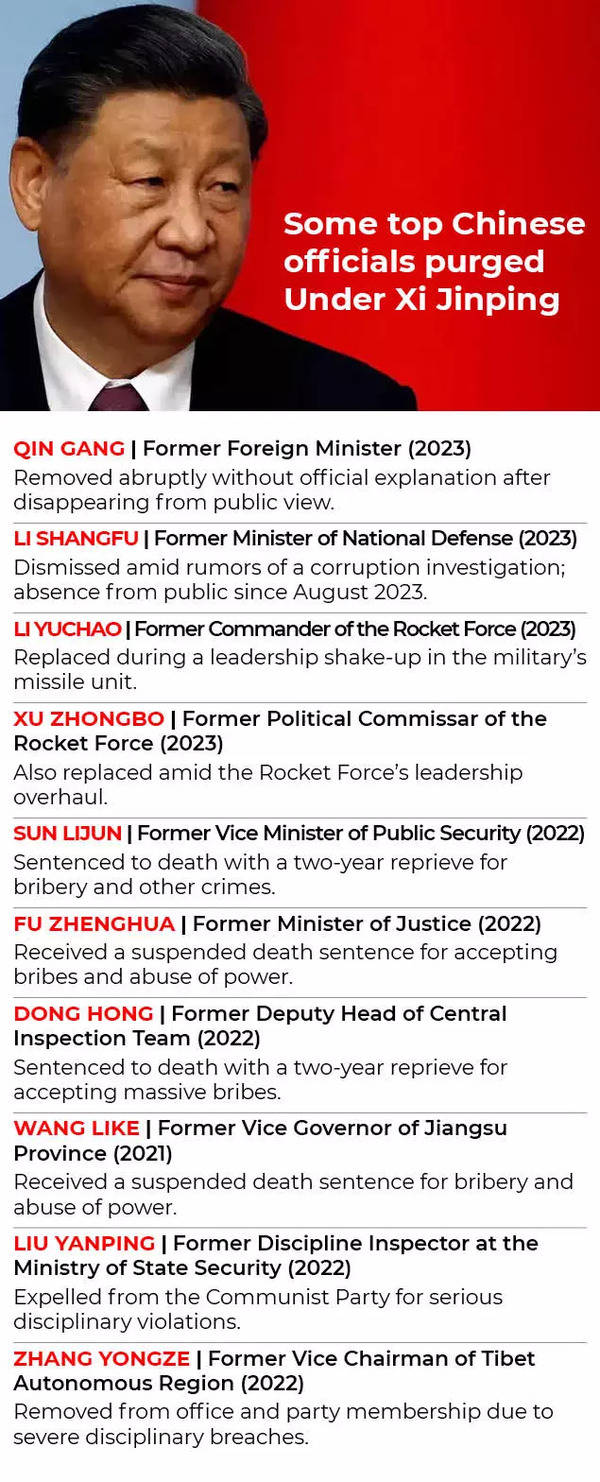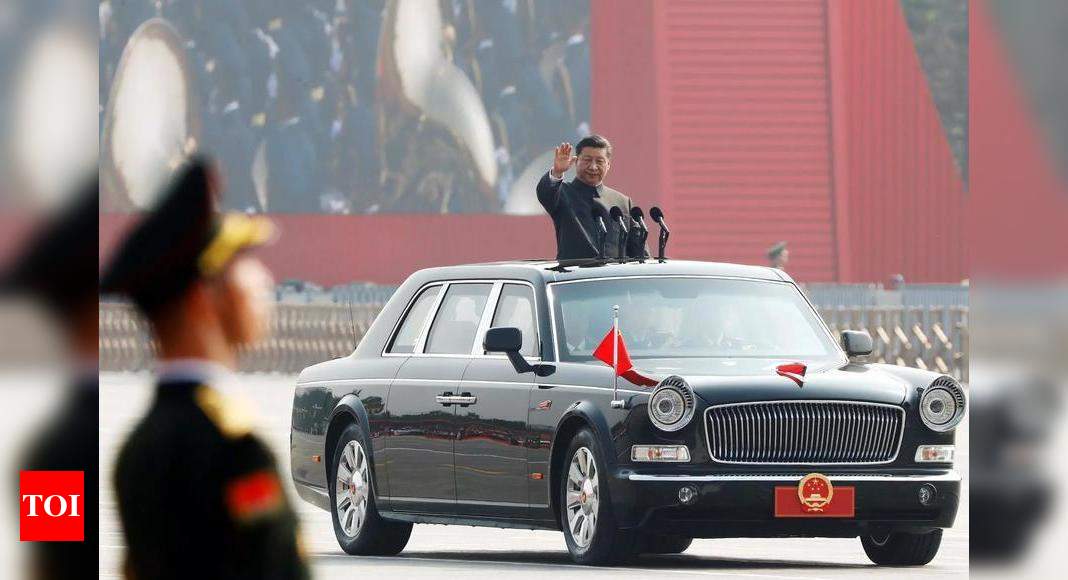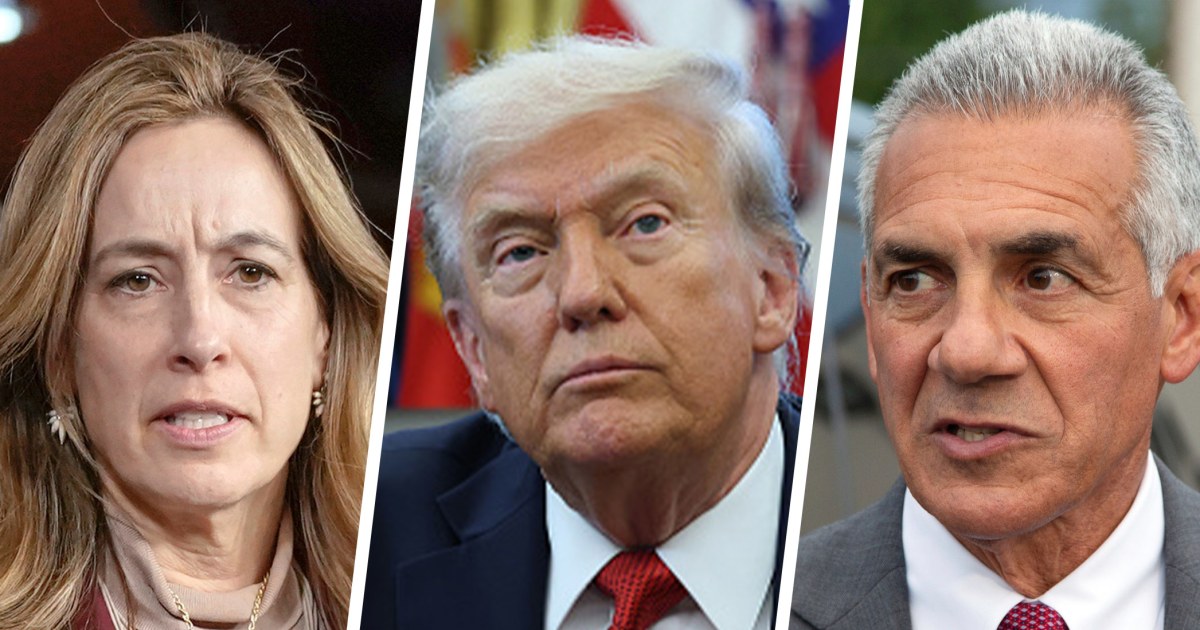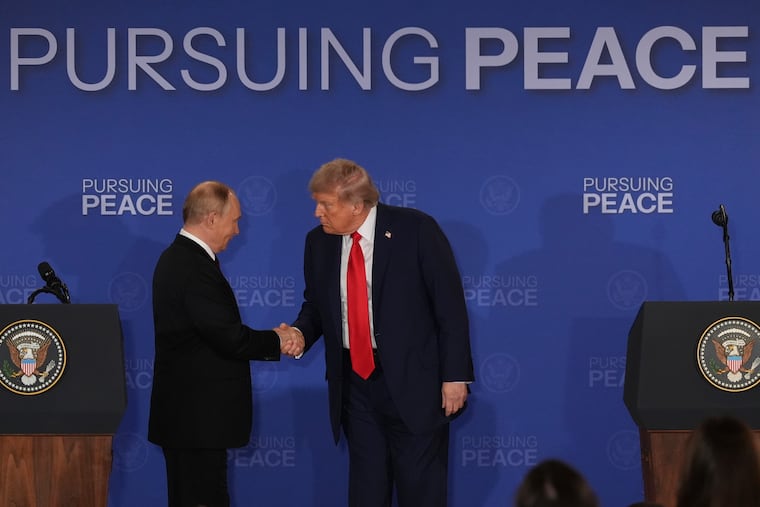In last few years, a seismic purge has rocked the upper echelons of China’s military leadership, with President Xi Jinping targeting senior officials for alleged corruption. The most recent casualty is Admiral Miao Hua, a member of the Central Military Commission (CMC)—China’s top military decision-making body.
Driving the news
- This marks the latest chapter in Xi’s unrelenting anti-corruption campaign, now extending to the core of the
People’s Liberation Army (PLA). - Admiral Miao Hua, a senior member of China’s Central Military Commission (CMC), has been placed under investigation for “serious violations of discipline,” a euphemism for corruption.
- As head of the CMC’s political work department, Miao was responsible for enforcing party discipline within the PLA. His connection to Xi dates back to the 1990s when both served in Fujian province. His investigation underscores the breadth of Xi’s anti-corruption drive, even targeting those considered close allies.
- Miao’s suspension follows similar investigations into other high-ranking officials, including former defense ministers Li Shangfu and Wei Fenghe.
- Many of the targeted officials had roles in China’s elite Rocket Force, which oversees the country’s nuclear arsenal.
- Meanwhile, the defense ministry dismissed reports that the current defense minister,
Admiral Dong Jun , is also under investigation, calling such claims “sheer fabrication.” However, Dong’s omission from the CMC—a break from recent tradition—suggests he may also be under scrutiny.
Why it matters
- These purges highlight a widening anti-corruption crackdown under President Xi Jinping, with significant implications for the world’s largest military.
- Xi’s vision of a modernized, “world-class” People’s Liberation Army (PLA) by 2050 relies on disciplined leadership and advanced military capabilities. Yet, allegations of systemic corruption threaten to undermine both readiness and internal cohesion.
- The scale of the crackdown signals that corruption is not limited to a few “bad apples” but is deeply entrenched within the military hierarchy. This raises questions about Xi’s ability to manage his expansive anti-corruption campaign while maintaining loyalty and stability among China’s military elites.
The big picture
- Xi’s campaign against corruption has long been a cornerstone of his rule, targeting officials across all levels of government. Since 2012, the effort has removed millions of officials. However, the current purge focuses on the PLA, a critical institution for Xi’s domestic and international ambitions.
- Strategic implications: The PLA’s Rocket Force is central to China’s nuclear deterrence strategy and any potential plans for Taiwan. Corruption within this unit, such as the procurement of substandard missiles, raises doubts about the reliability of China’s military assets.
- Rocket Force troubles: The Rocket Force, elevated under Xi’s military reforms in 2015, has been particularly impacted. Allegations include substandard equipment and procurement scandals. Several top commanders, including Li Yuchao and Liu Guangbin, have been purged, and US intelligence reports suggest operational weaknesses such as non-functional missile silos and improperly fueled missiles.
- Broader purge: Since mid-2023, over a dozen senior military and aerospace figures have been removed. This includes high-ranking officials involved in equipment procurement, further highlighting corruption’s impact on China’s military modernization.
- Internal instability: Unlike previous campaigns targeting rival factions, the current purge affects Xi’s own appointees, including officials seen as loyalists. This has led to speculation about growing paranoia and potential fractures within Xi’s inner circle.

Between the lines
- The PLA’s corruption issues are more than a financial drain—they threaten the effectiveness of China’s armed forces at a time of increasing geopolitical tension. Xi’s ambitions for the PLA to rival global military powers hinge on overcoming these internal challenges.
- Critics argue that Xi’s centralized power exacerbates these issues, as a lack of institutional checks and balances allows corruption to fester. Moreover, the opacity of China’s political and military systems makes it difficult to assess the full extent of these problems or their impact on strategic capabilities.
- Xi’s purges are reshaping the balance of power within the PLA and the broader Communist Party. Miao’s removal highlights the risks of even senior loyalists falling afoul of Xi’s drive to consolidate authority. His investigation also exposes the fragility of personal alliances in a political system where loyalty to Xi is the ultimate currency.
What they’re saying
“Corruption in China’s military is not a case of a ‘few bad apples,’” said Lyle Morris, a national security fellow at the Asia Society Policy Institute. “It is part of ‘doing business’ in the PLA to a much greater extent than most other military organizations around the world.”
Xi himself has acknowledged “deep-seated problems” within the PLA, describing the current political climate as “intricate and complex.” At a recent military conference, he emphasized the need to root out corruption, stating, “There must be no hiding place for corrupt elements in the army.”
“Since his reign began in 2012, Xi Jinping’s endless purges have removed millions of officials — from top-ranked Communist Party “tigers” down to lowly bureaucratic “flies,” to use Xi’s evocative terminology,” an article in Politico “China’s Xi goes full Stalin with purge” said.
The stakes
- Domestic pressures: Xi’s crackdown coincides with broader challenges in China, including economic stagnation, youth unemployment, and growing discontent among the middle class. A weakened or destabilized PLA could undermine Xi’s authority at a time when he faces mounting domestic scrutiny.
- Taiwan and regional security: The PLA’s readiness is critical for any potential action in Taiwan or other disputed territories. Corruption-related inefficiencies could delay or complicate Xi’s ambitions, particularly as the US and its allies strengthen their presence in the Indo-Pacific region.
- Global perception: The purges also raise questions about China’s military reliability. For a country seeking to position itself as a global superpower, reports of corruption and operational failures weaken its credibility on the world stage.
What’s next
Xi, China’s “president for life” is likely to intensify his anti-corruption campaign, focusing on tightening internal discipline and improving transparency within the PLA. Recent moves, such as amending audit rules and reforming procurement systems, suggest an effort to address systemic issues.
However, analysts caution that these measures may only scratch the surface. The lack of independent oversight and the concentration of power under Xi mean that corruption could persist, undermining the very reforms he seeks to implement.
(With inputs from agencies)


